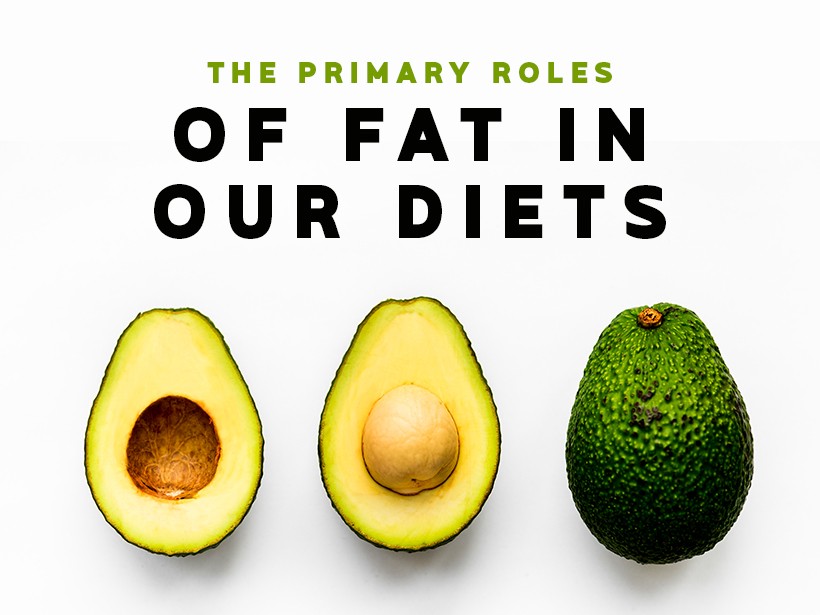The importance of fats can be confusing. Misinformation over decades has led many people to believe that fats are the cause of heart disease, obesity, and other chronic health conditions. However, not all fats are the same. Some are “good,” and other types are “bad.” Here’s the truth about the different roles of fats and why you NEED to ensure that you’re getting enough of the correct types.
Four types of fats
There are four types of fats, each with a unique chemical structure and physical properties. They are:
- Trans fats
- Saturated fats
- Polyunsaturated fats (PUFAs)
- Monounsaturated fats (MUFAs)
Trans fats are considered unhealthy while saturated, polyunsaturated, and monounsaturated fats are the healthy types. (Saturated fats have traditionally been seen as harmful, but scientific research1 has refuted that.) Keto places a high emphasis on quality fats, such as coconut oil.
The American Heart Association recommends eating foods with MUFAs and PUFAs like avocado, wild-caught salmon, olives, nuts, and seeds. Just be sure to balance your total caloric intake with the number of calories you burn off. All types of fats contain 9 calories per gram.2
Roles of fat in the body
Fats are essential for good health. Healthy fats are necessary for core body functions, including energy production, hormone synthesis, and keeping cholesterol and triglyceride levels in balance. Some of the other vital roles of fat in the body are:
- Fighting inflammation
- Providing structure to cells
- Balancing blood sugar levels
- Regulating body temperature
- Supporting immune system function
- Maintaining healthy nails, hair, and skin
- Absorbing fat-soluble vitamins (A, D, E, and K)
Fats and energy production
Healthy fats keep you feeling fuller after eating because they are crucial for balancing the amount of glucose in the blood. The Merck Manual reports that “Fats are the slowest source of energy but the most energy-efficient form of food. Each gram of fat supplies the body with about 9 calories, more than twice that supplied by proteins or carbohydrates.”3
Fats and hormone production
Fatty acids are critical components of some of the most essential compounds in the body. Fats help the body to produce prostaglandins, which are substances like hormones that are responsible for numerous body functions.
Fats also modulate the synthesis of testosterone and estrogen hormones. Dr. Bill Sears asserts, “You need fats because they regulate the production of sex hormones, which explains why some teenage girls who are too lean experience delayed pubertal development and amenorrhea.”4
How much fat should I eat?
Every person has a unique optimal daily requirement for fats in the diet, based on factors like gender, weight, height, age, exercise level, and health status. If you're wondering where to start, check out our handy Keto Calculator to find out what your macro levels should be.
Focus on adding more healthy fats from seafood, seeds, nuts, and avocados to your diet. Cut back on hydrogenated oils and deep-fried foods as much as you can. Fat is essential for your diet, but not all fats are created equal!
NUTRITIONAL DISCLAIMER
The content on this website should not be taken as medical advice and you should ALWAYS consult with your doctor before starting any diet or exercise program. We provide nutritional data for our recipes as a courtesy to our readers. We use Total Keto Diet app software to calculate the nutrition and we remove fiber and sugar alcohols, like erythritol, from the total carbohydrate count to get to the net carb count, as they do not affect your blood glucose levels. You should independently calculate nutritional information on your own and not rely on our data. The website or content herein is not intended to cure, prevent, diagnose or treat any disease. This website shall not be liable for adverse reactions or any other outcome resulting from the use of recipes or recommendations on the Website or actions you take as a result. Any action you take is strictly at your own risk.
- Keto Might Give Navy SEALs an Advantage - July 18, 2019
- The Primary Roles of Fat in Our Diets - July 8, 2019
- Low Carb Tech is Transforming Diabetes Treatment - June 21, 2019































